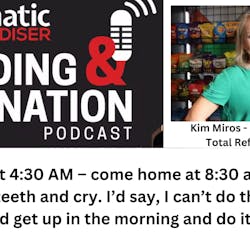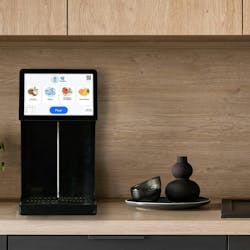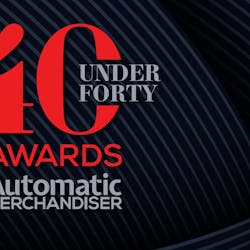Caribou Coffee Co., Inc., the second largest company-owned premium coffeehouse operator in the U.S. based on the number of coffeehouses, today reported financial results for the second quarter of 2012 (13 weeks ended July 1, 2012). The company also adjusted its fiscal 2012 outlook.
Comparable coffeehouse store sales increased 2.8 percent.
Net income was $2.8 million, or $0.13 per diluted share compared to $4.4 million, or $0.21 per diluted share, in the second quarter of 2011. The year-ago period was impacted by a tax benefit related to the reversal of a portion of our tax valuation allowance. Non-GAAP pro forma net income in the second quarter of 2011 was $2.7 million, or $0.13 per diluted share.
Speaking on behalf of the company, Michael Tattersfield, the president and chief executive officer commented in a prepared statement, “We were pleased to have held pro forma net income steady compared to the prior year period in the face of coffee commodity cost pressure and a lower contribution from the Keurig single-serve platform. Growth in comparable coffeehouse sales has also now been extended to 11 consecutive quarters and benefited from our continued focus on product innovation. In addition we also reached a new franchise milestone of 100 international coffeehouses further demonstrating the extensive popularity of Caribou Coffee outside of the U.S.”
Tattersfield concluded, “Although our updated projections for Caribou-branded K-cups have led us to adjust our full year outlook, we view the dynamics affecting our single-serve business as temporary challenges and remain committed to strengthening our Green Mountain relationship. More importantly, the diversification afforded to us through our multi-channel model provides us numerous levers to achieve sustainable growth in sales and profitability over the long-term.”
Net sales for the quarter of $81.1 million increased $0.8 million, or 1.1 percent, from $80.3 million in the comparable quarter of 2011.
Coffeehouse sales were $62.0 million in the second quarter of 2012, an increase of 3.3 percent compared to $60.0 million in the second quarter of 2011. Growth was driven by a 2.8 percent increase in comparable coffeehouse sales, primarily due to increased beverage sales.
Commercial sales were $15.5 million in the second quarter of 2012, a decrease of 7.9 percent compared to $16.8 million in the second quarter of 2011. This change was driven by a decrease in sales of blended coffee into the Keurig single-serve platform and related royalties, partially offset by increased sales to new and existing customers in the company’s grocery and foodservice channels.
Franchise sales were $3.6 million in the second quarter of 2012, an increase of 6.0 percent compared to $3.4 million in the second quarter of 2011. Growth in product sales and royalties from 188 franchise locations, a net increase of 41 locations from the prior year, drove the increase in franchise sales versus last year.
Cost of sales and related occupancy costs in the second quarter of 2012 were $39.8 million, an increase of $1.9 million, or 5.0 percent, compared to the second quarter of 2011, and were driven by significantly higher coffee commodity costs. As a percentage of revenue, cost of sales and related occupancy costs were 49.1 percent in the second quarter of 2012 versus 47.2 percent in the same period of the prior year. The increase as a percentage of sales was due to higher coffee commodity costs versus the prior year.
Operating expenses in the second quarter of 2012 were $26.4 million, a decrease of $0.4 million, or 1.6 percent, compared to $26.8 million in the second quarter of 2011. The decrease in operating expenses was driven by lower labor costs that were partially offset by higher fees for debit card transactions due to recent legislation changes. As a percentage of revenue, operating costs were 32.5 percent, compared to 33.4 percent in the same period of the prior year. The decrease as a percentage of sales is the result of leverage gained on fixed costs within the company’s business channels.
General and administrative expenses decreased $0.6 million, or 7.0 percent, to $7.6 million in the second quarter of 2012, from $8.1 million in the second quarter of 2011. As a percentage of total net sales, general and administrative expenses decreased to 9.3 percent in the second quarter of 2012 from 10.1 percent in the second quarter of 2011, as the company leveraged fixed costs on higher sales.
Depreciation and amortization decreased $0.3 million to $2.5 million during the second quarter of 2012 due to a lower depreciable asset base.
Tax expense was $2.0 million in the second quarter of 2012 compared to a tax expense of less than $0.1 million in the second quarter of 2011. The tax benefit in 2011 related to the reversal of a portion of the company’s valuation allowance against accumulated net operating losses and other deferred tax assets and the corresponding recognition of those deferred tax assets on the company’s balance sheet.
The company’s net income in the second quarter of 2012 was $2.8 million, or $0.13 per diluted share, compared to $4.4 million, or $0.21 per diluted share, in the same period in 2011. When adjusting for the reversal of the valuation allowance on the company’s deferred tax assets, the company’s non-GAAP pro forma net income in the second quarter of 2011 was $2.7 million, or $0.13 per diluted share.
The company changed its outlook and expects net sales to be flat compared with 2011.
Net coffeehouse unit growth will be 60 to 70, of which approximately 15 will be company-owned coffeehouse openings.
Diluted earnings per share will be $0.43 to $0.46.
The change in the company’s outlook is primarily attributable to the expectation of lower sales related to its Green Mountain relationship, which is driven by continued channel shifting, the short-term impact of new price tiers in the category, as well as the loss of a significant account in the club business. While these factors have created shifts to the near term, Caribou remains confident in its long-term growth prospects in the single-serve marketplace.




